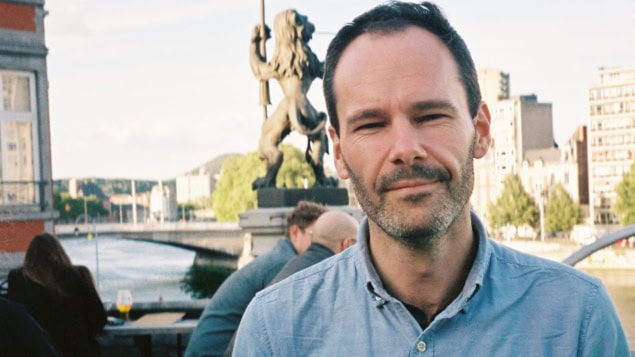Tom Woodroof did a PhD in applied nuclear physics at the University of Liverpool, UK, before leaving academia to find ways to build a more equitable and sustainable economy. He is co-founder of the company Mutual Credit Services

What skills do you use every day in your job?
I co-founded Mutual Credit Services in 2020 to help small businesses thrive independently of the banking sector. As a financial technology start-up, we’re essentially trying to create a “commons” economy, where power lies in the hands of people, not big institutions, thereby making us more resilient to the climate crisis.
Those goals are probably as insanely ambitious as they sound, which is why my day-to-day work is a mix of complexity economics, monetary theory and economic anthropology. I spend a lot of time thinking hard about how these ideas fit together, before building new tech platforms, apps and services, which requires analytical and design thinking.
There are still many open questions about business, finance and economics that I’d like to do research on, and ultimately develop into new services. I’m constantly learning through trial projects and building a pipeline of ideas for future exploration.
Developing the business involves a lot of decision-making, project management and team-building. In fact, I’m spending more and more of my time on commercialization – working out how to bring new services to market, nurturing partnerships and talking to potential early adopters. It’s vital that I can explain novel financial ideas to small businesses in a way they can understand and have confidence in. So I’m always looking for simpler and more compelling ways to describe what we do.
What do you like best and least about your job?
What I like best is the variety and creativity. I’m a generalist by nature, and love using insights from a variety of disciplines. The practical application of these ideas to create a better economy feels profoundly meaningful, and something that I’d be unlikely to get in any other job. I also love the autonomy of running a business. With a small but hugely talented and enthusiastic team, we’ve so far managed to avoid the company becoming rigid and institutionalized. It’s great to work with people on our team and beyond who are excited by what we’re doing, and want to be involved.
Ask me anything: Hannah Earley – ‘I love theory, but seeing an idea get closer and closer to reality is great’
The hardest thing is facing the omnicrisis of climate breakdown and likely societal collapse that makes this work necessary in the first place. As with all start-ups, the risk of failure is huge, no matter how good the ideas are, and it’s frustrating to spend so much time on tasks that just keep things afloat, rather than move the mission forward. I work long hours and the job can be stressful.
What do you know today, that you wish you knew when you were starting out in your career?
I spent a lot of time during my PhD at Liverpool worrying that I’d get trapped in one narrow field, or drift into one of the many default career options. I wish I’d known how many opportunities there are to do original, meaningful and self-directed work – especially if you’re open to unconventional paths, such as the one I’ve followed, and can find the right people to do it with.
It’s also easy to assume that certain skills or fields are out of reach, whereas I’ve found again and again that a mix of curiosity, self-education and carefully-chosen guidance can get you surprisingly far. Many things that once seemed intimidating now feel totally manageable. That said, I’ve also learned that everything takes at least three times longer than expected – especially when you’re building something new. Progress often looks like small compounding steps, rather than a handful of breakthroughs.




